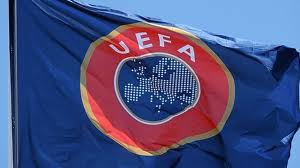By Andrew Warshaw
May 17 – Manchester City and Paris Saint Germain, Europe’s two Middle East-backed powerhouses with seemingly limitless funds in their quest to dominate the Continent, were brought down to earth with a jolt today when UEFA, after a week’s delay, finally announced their raft of sanctions on nine clubs deemed in breach of financial fair play (FFP) rules.
The respective champions of England and France, bankrolled respectively by Abu Dhabi’s Sheikh Mansour and the Qatar Investment Authority, were both fined €60 million, two-thirds of which will be returned if they fulfil their financial obligations over the next few years.
City and PSG have leaped to prominence on the back of massive spending sprees, signing up top players and setting in place lucrative sponsorship deals with companies closely linked to their owners. In other words, according to their critics, buying success.
Under FFP rules clubs were allowed to lose up to 45 million euros between 2011 and 2013 but UEFA took the view that both City and PSG exceeded the permitted losses over the course of the 2011-12 and 2012-13 seasons.
As well as the fines and as part of their settlement with UEFA, the two clubs agreed to curbs on transfer spending, are not allowed to increase the wage bill and, perhaps most critically of all, saw their squads for the forthcoming Champions League season cut from 25 to 21 players.
UEFA had always pledged that they would get tough on the overspenders, but City immediately issued a statement defending their behaviour.
“This will have no material impact on the club’s planned transfer activity,” the club said. At the heart of discussions with UEFA was “a fundamental disagreement between the club’s and UEFA’s respective interpretations of the FFP regulations on players purchased before 2010. The club believes it has complied with the FFP regulations on this and all other matters.”
Had they taken their case to appeal, City would have risked a ban from next season’s Champions League. “In normal circumstances, the club would wish to pursue its case and present its position through every avenue of recourse,” City said. “However, our decision to do so must be balanced against the practical realities for our fans, for our partners and in the interests of the commercial operations of the club.”
The Premier League champions said they believed they would comply with all UEFA’s conditions and be free of any restrictions by the start of the 2015-16 season. For their part, PSG admitted they would face a “tremendous handicap” in competing with top European teams but would not be deterred.
PSG, who had been accused of creative accounting, were particularly disappointed at UEFA assigning a lower value to the sponsorship deal the club put together with the Qatar Tourism Authority, reported to be worth €200 million per season. “Our ambition to build one of the best and most competitive European football clubs will not be undermined by these measures,” declared PSG President Nasser Al-Khelaifi.
PSG said there had been “irreconcilable differences” with UEFA over its sponsorship with the QTA. “We will continue to invest in developing a highly competitive team and we will continue our investments in our stadium and training infrastructures while at the same time remaining, as we are today, debt free,” added Al-Khelaifi.
UEFA handed lesser punishments to seven other clubs who were deemed to have broken the rules: Galatasaray (€200,000), Bursaspor (€200,000) and Trabzonspor (€200,000) of Turkey; Russia’s Zenit St Petersburg (12 million), Rubin Kazan (6 million) and the free-spending but recently relegated Anzhi Makhachkala (€2 million); and Levski Sofia (€200,000) of Bulgaria.
FFP was introduced as a result of UEFA president Michel Platini’s fears that many clubs were risking their very futures by spending more than they earned. The European Clubs Association, which represents more than 200 clubs, said Europe’s governing body had done the right thing for the benefit of a more level playing field.
ECA chairman Karl-Heinz Rummenigge said: “Financial Fair Play is a bonus for the clubs, as it helps them to control costs. As we have seen today, UEFA applies Financial Fair Play very consistently. Therefore, I call on all clubs in Europe to respect the rules and continue on the path we have chosen together with UEFA.”
Contact the writer of this story at moc.l1745184605labto1745184605ofdlr1745184605owedi1745184605sni@w1745184605ahsra1745184605w.wer1745184605dna1745184605

